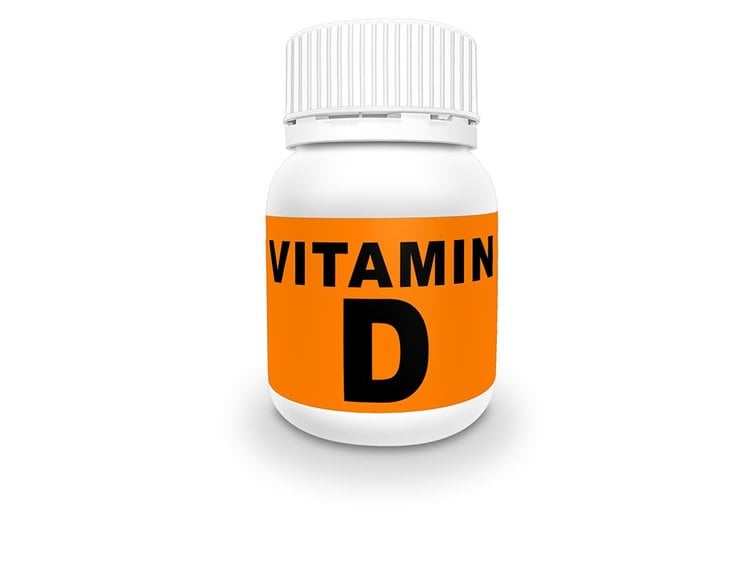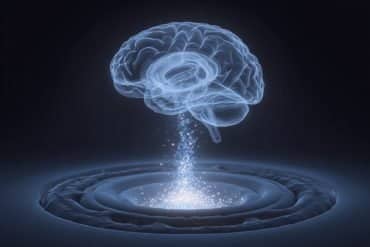Summary: Researchers examine the scientific evidence for the 10 most common beliefs about vitamin D.
Source: University of Alberta.
As Canadians prepare for long summer days in the sun, a new publication is shedding light on the suggested medical benefits of a nutrient that comes with the sun’s rays: vitamin D.
The vital nutrient is widely seen as an important element to good health. Many people place strong belief in its potential benefits in treating a number of medical conditions–such as depression or Multiple Sclerosis–and feel a need to supplement their vitamin D intake. But according to Michael Allan, a professor of Family Medicine and director of Evidence Based Medicine at the University of Alberta’s Faculty of Medicine & Dentistry, much of that belief isn’t validated by science.
“Wouldn’t it be great if there was a single thing that you or I could do to be healthy that was as simple as taking a vitamin, which seems benign, every day? There is an appeal to it. There is a simplicity to it. But for the average person, they don’t need it.” says Allan.
Allan is the lead author of a review published in the Journal of General Internal Medicine that examines the evidence for 10 common beliefs about vitamin D. The beliefs range from the ability of vitamin D to reduce falls and fractures, improve depression and mental well-being, prevent rheumatoid arthritis, treat Multiple Sclerosis, and lessen incidences of cancer and mortality. The review finds little evidence though that supplementation with this vitamin has much of an effect at all.
According to Allan, only a few of the 10 beliefs the team looked into seemed to exhibit some scientific proof. Strongest among them, vitamin D was shown to have a minor impact in reducing the number of falls among the elderly and reducing fractures.
“Even areas that we really thought there was good evidence for benefit early on, don’t seem to be bearing out,” says Allan. “The one that we probably have the most evidence for is fractures. If you were to take a group of people who were at higher risk of breaking a bone–so had about a 15 per cent chance of breaking a bone over the next 10 years–and treated all of them with a reasonable dose of vitamin D for a decade, you’d prevent a fracture in around one in 50 of them over that time.”
“Many people would say taking a drug for 10 years to stop one in every 50 fractures is probably not enough to be meaningful. And that’s the best vitamin D gets as far as we know now.”
Allan says other possible benefits of vitamin D covered in the review were not borne out or are still unproven. He is quick to point out that much of the existing research around vitamin D was poorly executed and consists of poor quality evidence. While he welcomes ongoing research in the area, he says moving forward it needs to consistently be of a higher caliber to be of clinical relevance.

“It makes it really difficult to determine a lot of time if there is anything substantial there that you could tell a patient, ‘You can take this and it can help you this much.’ There’s really not nearly enough there to say that.”
Despite the lack of evidence, belief in the benefits of vitamin D supplementation remains strong. Allan believes much of that stems from misplaced trust in previous research studies showing low vitamin D levels are associated with poor health outcomes, however they don’t prove causation. The bottom line, he says, is that while moderate vitamin D supplementation won’t cause harm to the average healthy person, it won’t heal either.
“The 40 year old person is highly unlikely to benefit from vitamin D,” says Allan. “And when I say highly unlikely, I mean it’s not measurable in present science.”
Source: Shelby Soke – University of Alberta
Image Source: This NeuroscienceNews.com image is in the public domain.
Original Research: Abstract for “Vitamin D: A Narrative Review Examining the Evidence for Ten Beliefs” by G. Michael Allan, Lynda Cranston, Adrienne Lindblad, James McCormack, Michael R. Kolber, Scott Garrison, and Christina Korownyk in Journal of General Internal Medicine. Published online March 7 2016 doi:10.1007/s11606-016-3645-y
[cbtabs][cbtab title=”MLA”]University of Alberta. “Little Evidence for the Benefits of Vitamin D Supplementation For Health Problems.” NeuroscienceNews. NeuroscienceNews, 16 June 2016.
<https://neurosciencenews.com/vitamin-d-health-psychology-4502/>.[/cbtab][cbtab title=”APA”]University of Alberta. (2016, June 16). Little Evidence for the Benefits of Vitamin D Supplementation For Health Problems. NeuroscienceNews. Retrieved June 16, 2016 from https://neurosciencenews.com/vitamin-d-health-psychology-4502/[/cbtab][cbtab title=”Chicago”]University of Alberta. “Little Evidence for the Benefits of Vitamin D Supplementation For Health Problems.” https://neurosciencenews.com/vitamin-d-health-psychology-4502/ (accessed June 16, 2016).[/cbtab][/cbtabs]
Abstract
Vitamin D: A Narrative Review Examining the Evidence for Ten Beliefs
Over the past decade, a large body of observational evidence has suggested an association between lower vitamin D status (25-hydroxyvitamin D) and multiple acute and chronic disorders, including cancer, multiple sclerosis, depression and respiratory tract infections. This evidence has fostered the hypothesis that increasing vitamin D intake may treat and prevent such disorders. Our objective was to perform a critical analysis of the highest-level evidence for ten common beliefs regarding vitamin D for the prevention of falls, fractures and respiratory tract infections, the reduction of cancer incidence/mortality and overall mortality, and the prevention or treatment of depression/mental well-being, rheumatoid arthritis and multiple sclerosis, as well as maximum dosing and regular testing. We searched the Cochrane Database of Systematic Reviews and PubMed (up to August 2014) for randomized controlled trials and systematic reviews/meta-analyses based on those studies. All searches were performed, all evidence reviewed and each section written by at least two authors. The evidence shows that vitamin D supplementation provides some benefit in fracture prevention (likely ∼10–15 % relative reduction), particularly at a dose ≥800 IU and with calcium; a likely benefit in the rate of falls, though it is less clear whether the number of fallers changes; and a possible small (∼5 %) relative reduction in mortality. Evidence does not support the use of vitamin D supplementation for the prevention of cancer, respiratory infections or rheumatoid arthritis. Similarly, evidence does not support vitamin D supplementation for the treatment of multiple sclerosis and rheumatoid arthritis or for improving depression/mental well-being. Regular testing of 25-hydroxyvitamin D is generally not required, and mega-doses (≥300,000 IU) appear to increase harms. Much of the evidence is at high risk of bias, with multiple flaws, including analyses of secondary endpoints, small and underpowered studies, inconsistent results and numerous other issues. Therefore, enthusiasm for a vitamin D panacea should be tempered.
“Vitamin D: A Narrative Review Examining the Evidence for Ten Beliefs” by G. Michael Allan, Lynda Cranston, Adrienne Lindblad, James McCormack, Michael R. Kolber, Scott Garrison, and Christina Korownyk in Journal of General Internal Medicine. Published online March 7 2016 doi:10.1007/s11606-016-3645-y







